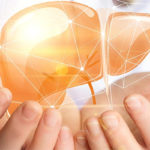For the liver
The liver is involved in every metabolic process in the body and detoxifies harmful substances through the excretory system. However, it is a silent organ as it does not have pain receptors and has a large reserve capacity, so even when overloaded or diseased, it is difficult to detect early.
To maintain a healthy and functioning liver, you should remember 3 things: drink plenty of water and consume a high-fiber diet, exercise regularly, and get enough sleep (preferably before 11 PM every day). In addition, you should avoid 4 things: excessive alcohol consumption, consuming moldy food, frequent anger, and uncontrolled weight gain leading to overweight or obesity.

For the kidneys
The kidneys are known as the “master of detoxification” of the body. The main function of the kidneys is to filter blood and waste products. When substances enter the body, after undergoing digestion and metabolism, they are re-filtered by the kidneys, retaining proteins and blood cells, while the rest is excreted as urine. The toxins from the metabolic process in the liver are also excreted through the kidneys. Therefore, the kidneys play a crucial role in helping the body eliminate excess and toxic substances to ensure health.
If the kidneys are overloaded, not only the detoxification function is affected, but it also directly affects the blood filtration process and the body’s vital functions. In that case, you will have to rely on lifelong dialysis or kidney transplantation.
To protect the kidneys, you should reduce the following 4 activities: holding urine, staying up late, overusing medication, and consuming excessive salt. Furthermore, you should increase the following 3 activities: drinking water, exercising regularly, and maintaining proper hygiene in the genital area.

For the lungs
The lungs ensure the respiratory function to maintain human life. Oxygen deficiency for 1-2 minutes can cause the heart to stop, the brain to faint, resulting in permanent damage, and in severe cases, it can lead to death.
If you want to prevent the lungs from accumulating too many toxins, overload, and diseases, you should maintain healthy habits as early as possible.
The 3 good habits for the lungs are improving air quality where you live and work, drinking plenty of water, and performing regular breathing exercises. The 4 activities that should be limited are staying up late for a long time, excessive alcohol consumption, working/living in a polluted/toxic environment, smoking or being exposed to secondhand smoke.
For the heart
The heart works 24/7 and never rests. The heart is the central station of the body, pumping oxygen and nutrient-rich blood throughout the body to sustain life. It also contributes to the overall detoxification mechanism of the body by pumping blood, oxygen, reducing toxins, and “waste” – especially the accumulation of plaque in the blood vessels.
To protect the heart, you should increase the following 3 activities: drinking enough water to facilitate blood production and smooth circulation; participating in sports/exercise to increase blood circulation, enhance heart contraction, and slow down aging of blood vessels; consuming foods that are good for cardiovascular health such as those rich in potassium and fiber.
In addition, you should limit the following 4 activities: frequent anger/stress; excessive consumption of sugar/salt/fat; smoking or being exposed to secondhand smoke; having poor oral hygiene. You should also try to control blood sugar, blood pressure, and cholesterol levels to maintain a healthy heart.

For the intestines
The intestines assist the body in detoxification through the process of digestion and excretion of toxic waste accumulated in the body through bowel movements. The intestines have the task of transporting and digesting food. This organ also has the ability to resist microorganisms (bacteria, viruses, and parasites) and regulate water levels in the body.
If waste substances accumulate in the body and cannot be excreted through digestion, it can be dreadful. Intestinal disorders not only cause discomfort but can also lead to various diseases, including the transformation of lung cancer: colorectal cancer.
Therefore, to improve intestinal digestion, you need to do more than 3 things: maintain a relaxed and positive mindset, exercise regularly, increase dietary fiber intake, and drink enough water. At the same time, you should avoid 4 bad habits: consuming excessive sugar or hard-to-digest foods, eating too quickly, not being focused while eating, skipping meals or irregular eating habits, smoking, and drinking excessive alcohol; holding bowel movements or sitting for too long on the toilet each time.
Discover the Top 12 Omega-3 Rich Foods
Contrary to popular belief, not all fats can be harmful to our health. In fact, some types of fat can be beneficial, assisting in the process of maintaining a healthy lifestyle. We often hesitate to consume fat due to fear of gaining weight, but it can be beneficial to learn more about the different types available.






































